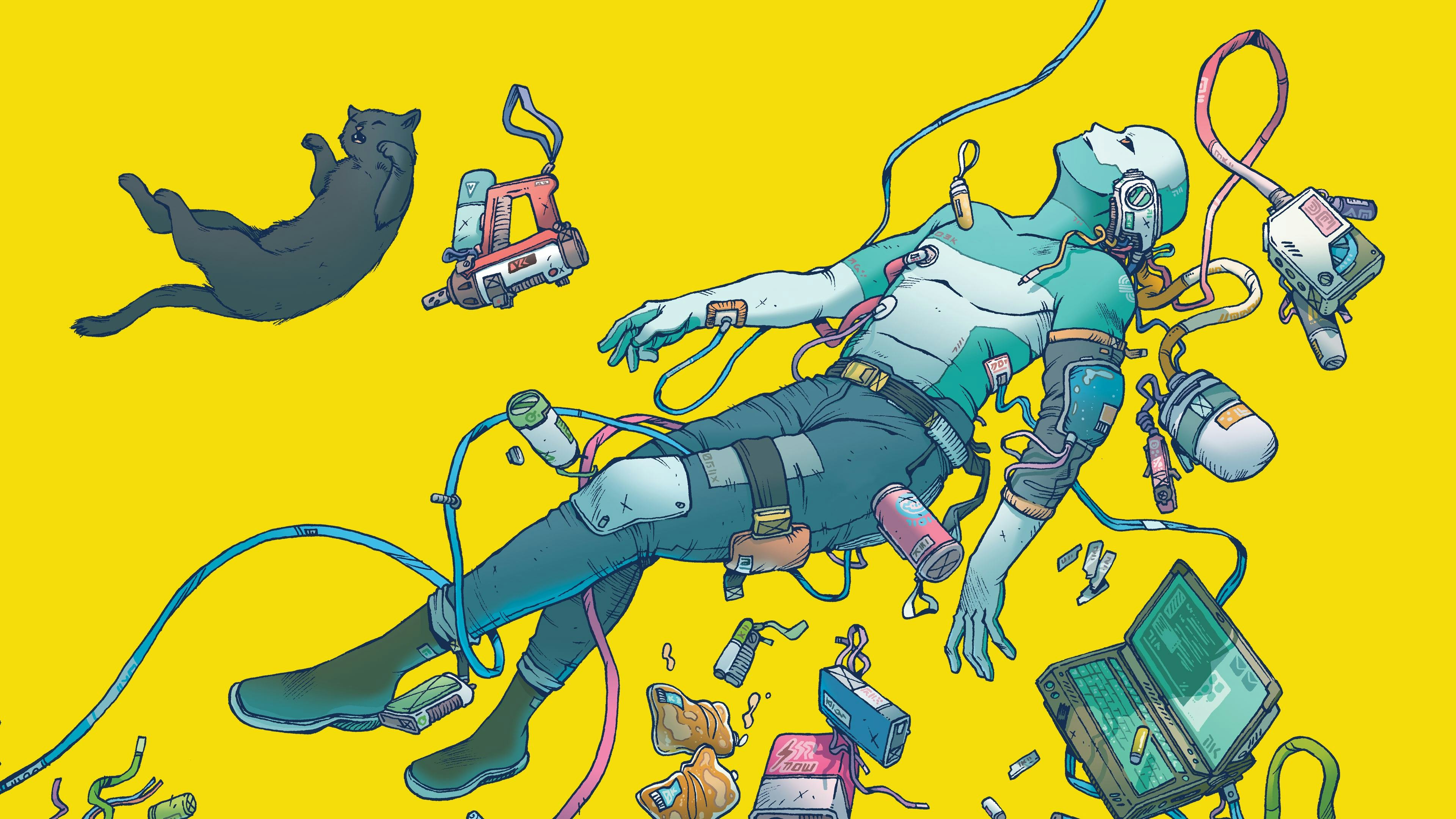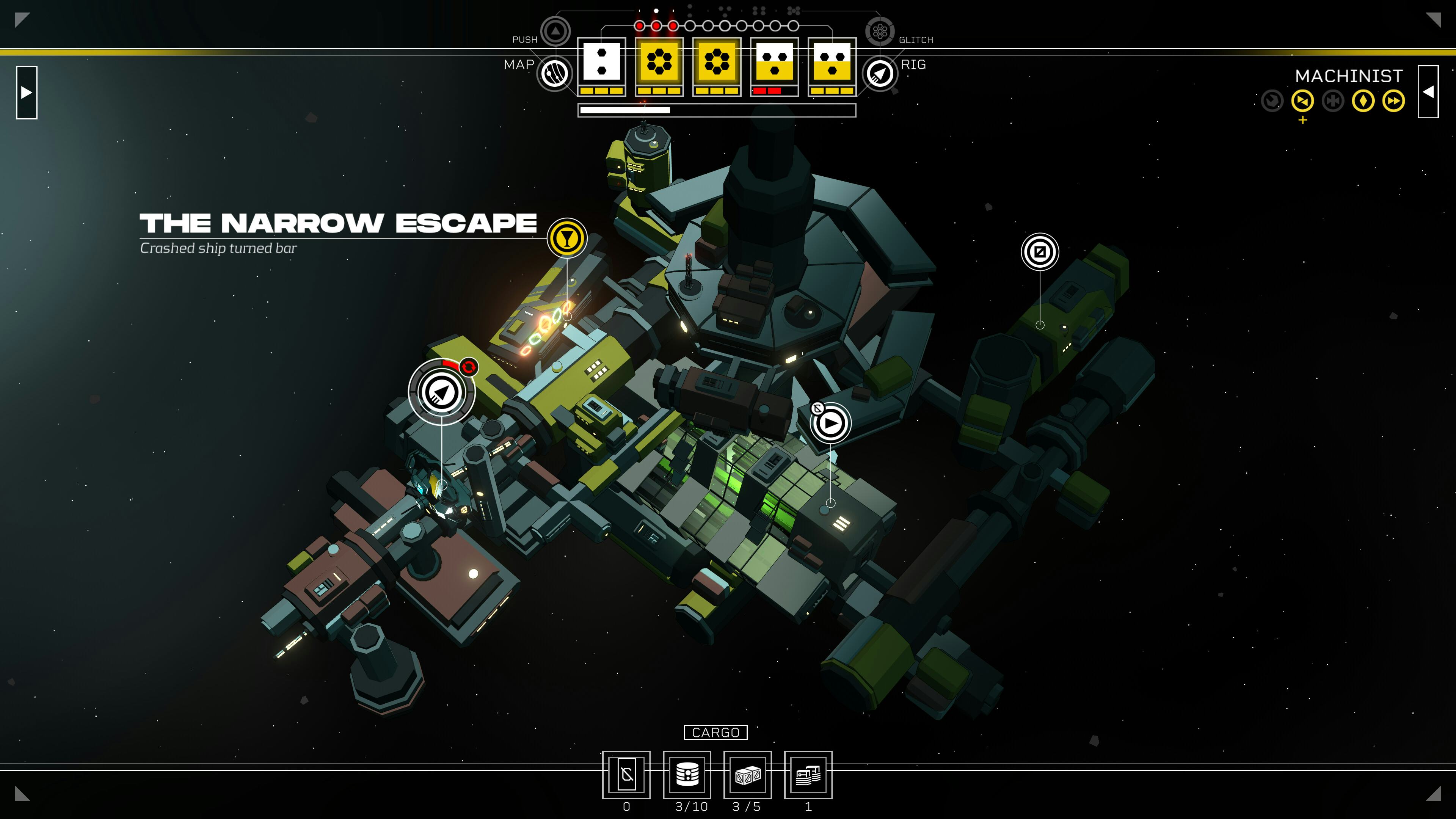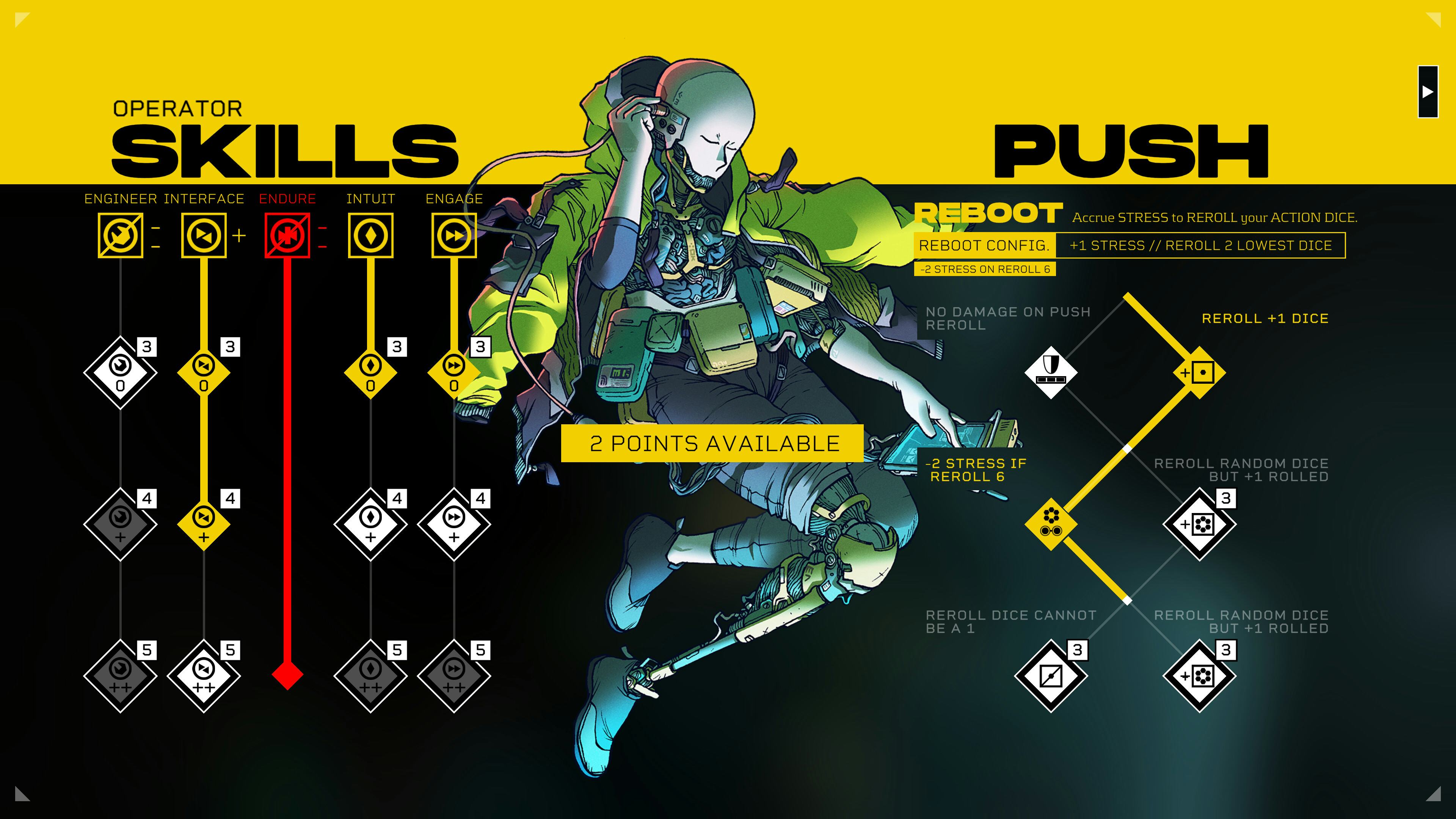
Citizen Sleeper 2, the sequel to one of 2022’s best RPGs, doesn’t even launch until the end of January, but its creator is already working on a sequel. What’s even more surprising is that for its third entry, the series is abandoning video games altogether for another medium — and it might end up being the perfect fit for Citizen Sleeper 3.
“I’m done with video games,” developer Gareth Damian Martin told Sports Illustrated. “Citizen Sleeper 2 has an ending of sorts. I’m working on developing a tabletop game, which will be Citizen Sleeper 3.”
It’s obviously unusual for a video game sequel to move into the realm of tabletop, but for Citizen Sleeper 3, it’s not much of a stretch. Both Citizen Sleeper and its soon-to-launch sequel take a lot of inspiration from tabletop RPGs already, building gameplay around dice rolls and focusing on story. Damian Martin has also cited tabletop RPGs like Blades in the Dark as direct inspirations for Citizen Sleeper. The series captures what makes tabletop RPGs great better than almost any other video game, so moving into the medium that inspired it makes a lot of sense.

This isn’t even the first time that Damian Martin has developed a tabletop RPG based on one of their video games. In 2023, they designed a module called Tidebreak for the Mothership RPG alongside Mothership creator Lone Archivist. Tidebreak is based on Damian Martin’s In Other Waters, a narrative adventure released in 2020.
Damian Martin has even alluded to the possibility of Citizen Sleeper getting its own tabletop adaptation before. In November 2022, I asked the developer about whether they would consider making a tabletop version of the game.
“There’s absolutely a chance that I’ll do that,” Damian Martin told Inverse. “But I’m not ready to let go of the reins for Citizen Sleeper.”
A little more than two years later, and Martin seems to be ready to let go — or, maybe, move forward. The move from video game to tabletop for Citizen Sleeper represents Martin giving players a chance to tell their own stories with the game’s systems, rather than playing through one crafted by the developer.

As rare as it is for games to make the jump from digital to analog, it’s not totally unprecedented. Games including Bloodorne, Horizon Zero Dawn, and Resident Evil 2 have been adapted into board games in the past. But those projects are fundamentally different from what Damian Martin appears to be doing with Citizen Sleeper 3. For one thing, board game adaptations like those are made by tabletop designers separate from the source game’s own developers, which isn’t the case for Citizen Sleeper. Other tabletop adaptations are also exercises in developing a brand-new game to represent the vibe of the original, where the next Citizen Sleeper is building on a system that’s not far from what you’d find in a tabletop RPG to begin with.
Video games have taken a lot from tabletop RPGs ever since their inception. Even fundamental concepts from character levels to hit points are drawn directly from early tabletop RPGs like Dungeons & Dragons, a game that’s also gotten plenty of direct adaptations, including last year’s Baldur’s Gate 3. Citizen Sleeper 3 presents an inversion of that relationship, with the chance to see what video games have to offer to the world of tabletop gaming. That exchange has already been happening on a smaller scale, as designers consciously or unconsciously borrow aspects of video games for their tabletop RPGs, but it rarely happens in as direct a fashion as it could with Citizen Sleeper 3.
Damian Martin’s comments don’t offer any more details on when we could see a tabletop Citizen Sleeper or what it could entail, but it’s a fascinating premise to consider. Before it arrives, Citizen Sleeper 2 will first tell its own story in the world created by the original when it launches on January 31.







